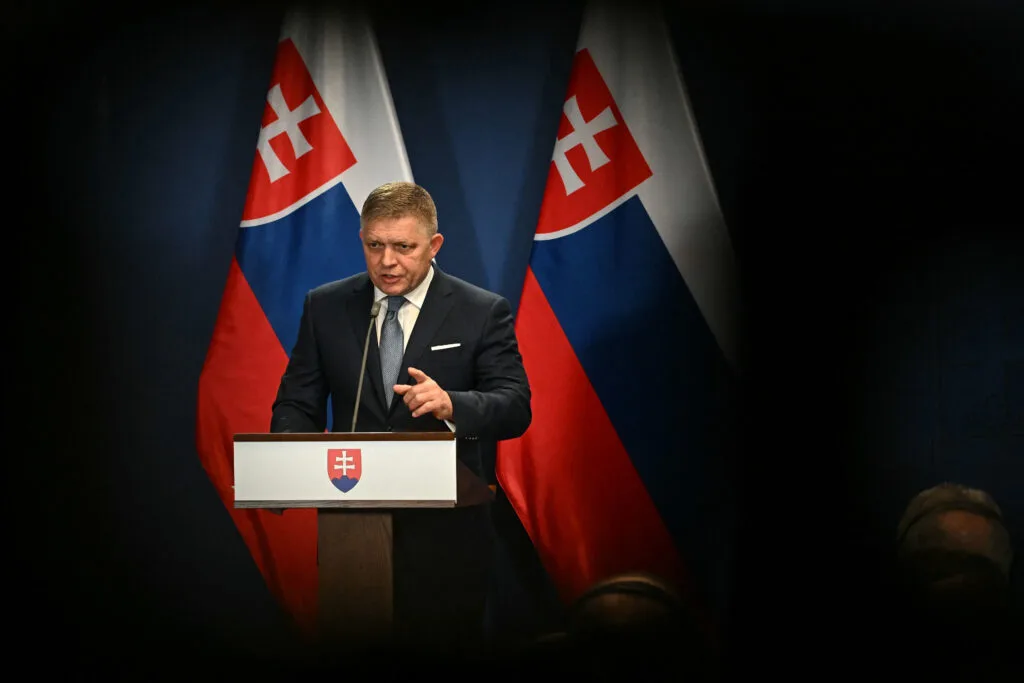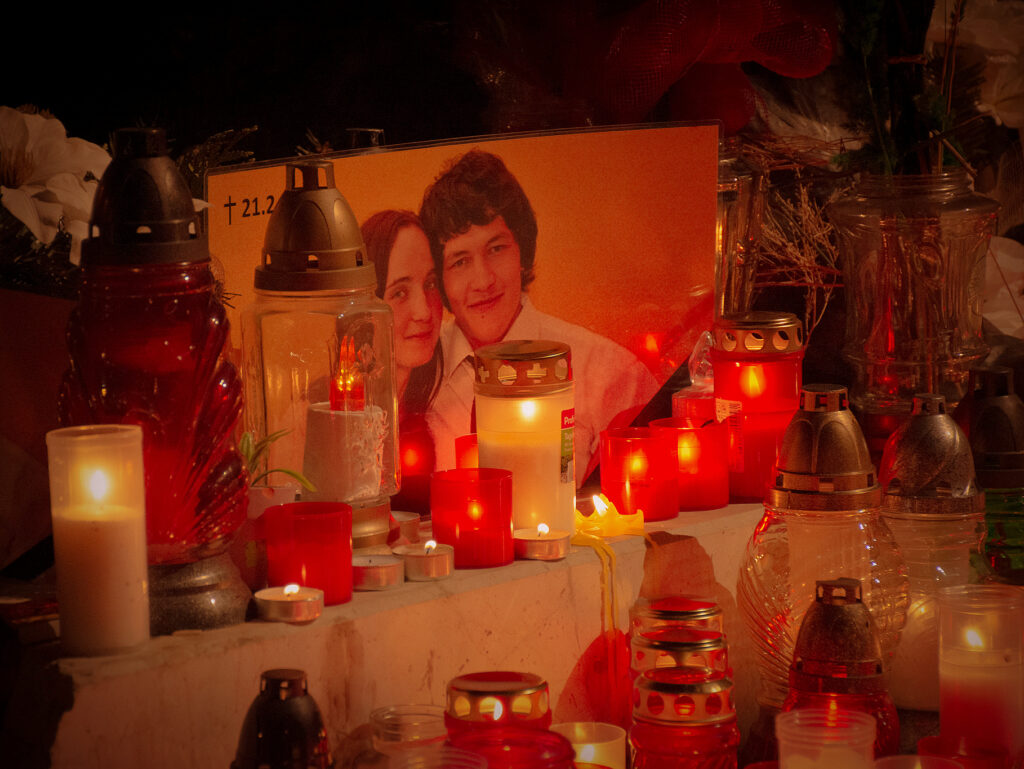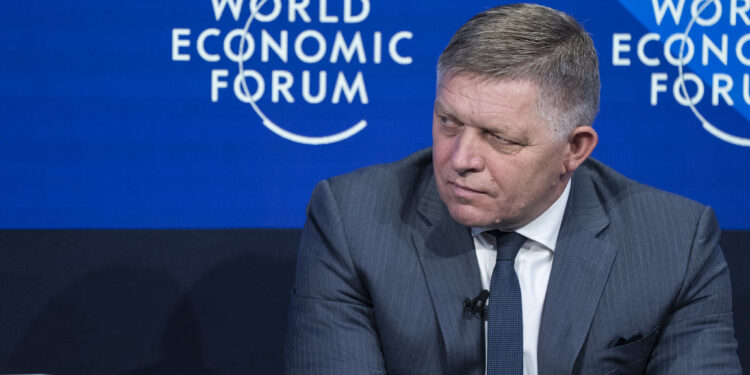Brussels–The political tension continues to rise in Bratislava, where we are now at the open clash between the pro-Russian prime minister Robert Fico and the parliamentary opposition forces. The head-to-head has led to the cancellation of a motion of no-confidence in the premier, who in turn has accused — citing evidence that is far from convincing — pro-EU protesters of planning a coup d’état along the lines of Ukraine’s Euromaidan.
Vote on no-confidence rises
For weeks now, the political climate in Slovakia has been getting increasingly heavy due to the head-on clash between the head of the executive, Robert Fico, and opposition forces. The latter are finding unprecedented unity in challenging the populist prime minister, mainly because of the increasingly close ties to Vladimir Putin‘s Russia and because of the government methods branded as authoritarian.
Tensions rose further on Tuesday (Jan. 21) when Parliament met in a special session to discuss a motion of no confidence promoted by opposition forces. However, it never took place because Fico, who was present at the debate, asked to move to a secret closed-door procedure, thus provoking the protest of the minorities, who left the Chamber.

As an excuse to suspend the public session, the premier said he had received a secret service report that urgently needed to be presented to the assembly. However, according to the opposition forces, it was a farce: “The report was just a bunch of platitudes compiled from emails,” said the number two of the Progressive Slovakian Liberal Party (PS), Tomas Valasek, adding that the government resorted to “a procedural trick to muzzle the opposition.”
PS leader and opposition leader Michal Šimečka accused Fico of wanting to get Slovakia out of the EU and rebuked him for his controversial visit to the Kremlin a few days before Christmas. “We are dangerously close to totalitarian practices,” warned his fellow party member Martin Dubéci.
Local media later published the content of the dispatch. The incriminated emails had circulated among organizations promoting a day of national mobilization called for tomorrow (Jan. 24), with demonstrations planned in Bratislava and some 20 other cities. As confirmed by one of the NGOs involved, the emails contained a set of programmatic guidelines for nonviolent protests to get the government to retrace its steps and reaffirm Slovakia’s pro-EU and pro-Ukraine course, which came to a stop when Fico regained power in the fall of 2023.
Charges of an attempted coup
During the visit of his Hungarian counterpart Viktor Orbán on Tuesday, the Slovak premier lashed out at parliamentary opposition forces and civil society organizations that support anti-government protests (which have been going on for several months now), which he said are responsible for preparing a “coup d’état” to overthrow democracy in the country.
Had my first meeting this year with Prime Minister Robert Fico
The world has become a different place since yesterday. The only place where they fail to notice this is Brussels.
❌ Instead of stopping the war, they want to continue financing it.
⚡️Instead of bringing… pic.twitter.com/FVJH7UdYug– Viktor Orbán (@PM_ViktorOrban) January 21, 2025
“I can’t name names, and I can’t discuss the circumstances, but I can tell you in all seriousness that the Slovak opposition is planning a Maidan,” Fico told the press, adding that the opposition “is planning to occupy government buildings” and promised in response “significant preventive measures” by the executive.
Civilian intelligence services said they had obtained information about “a long-term organized operation aiming to destabilize the Republic.” The prime minister convened an emergency meeting of the Security Council this morning. However, there were no updates on its outcome at the time of publication.
From the Euromaidan to Ján Kuciak
The premier was referring to Euromaidan, the popular uprising in February 2014, in which Ukrainians forced pro-Russian president Viktor Janukovyč to flee after months of protests violently repressed by the police apparatus. In response to what Kyiv calls a Revolution of Dignity, Moscow unilaterally annexed Crimea and supported separatist forces in starting hostilities in the Donbas.
According to Fico, unspecified Western “experts” active in Slovakia, like those who, according to the Russian narrative, were allegedly involved in the Ukrainian revolution 11 years ago and in the protests that have been shaking Georgia for months. The prime minister assured that the intelligence services are monitoring the situation.

The circumstances of the killing of Kuciak, who was investigating a high-level corruption case in which the ‘Ndrangheta was also allegedly involved, have never been clarified. However, many in Slovakia and abroad believe that the then-head of government played a role. Moreover, Fico himself directly linked the events of these days with those of 2018, claiming that he was the victim of a plot by obscure pro-Western forces.
English version by the Translation Service of Withub








![Enrico Letta [Bruxelles, 3 aprile 2025]](https://www.eunews.it/wp-content/uploads/2025/04/letta-120x86.png)